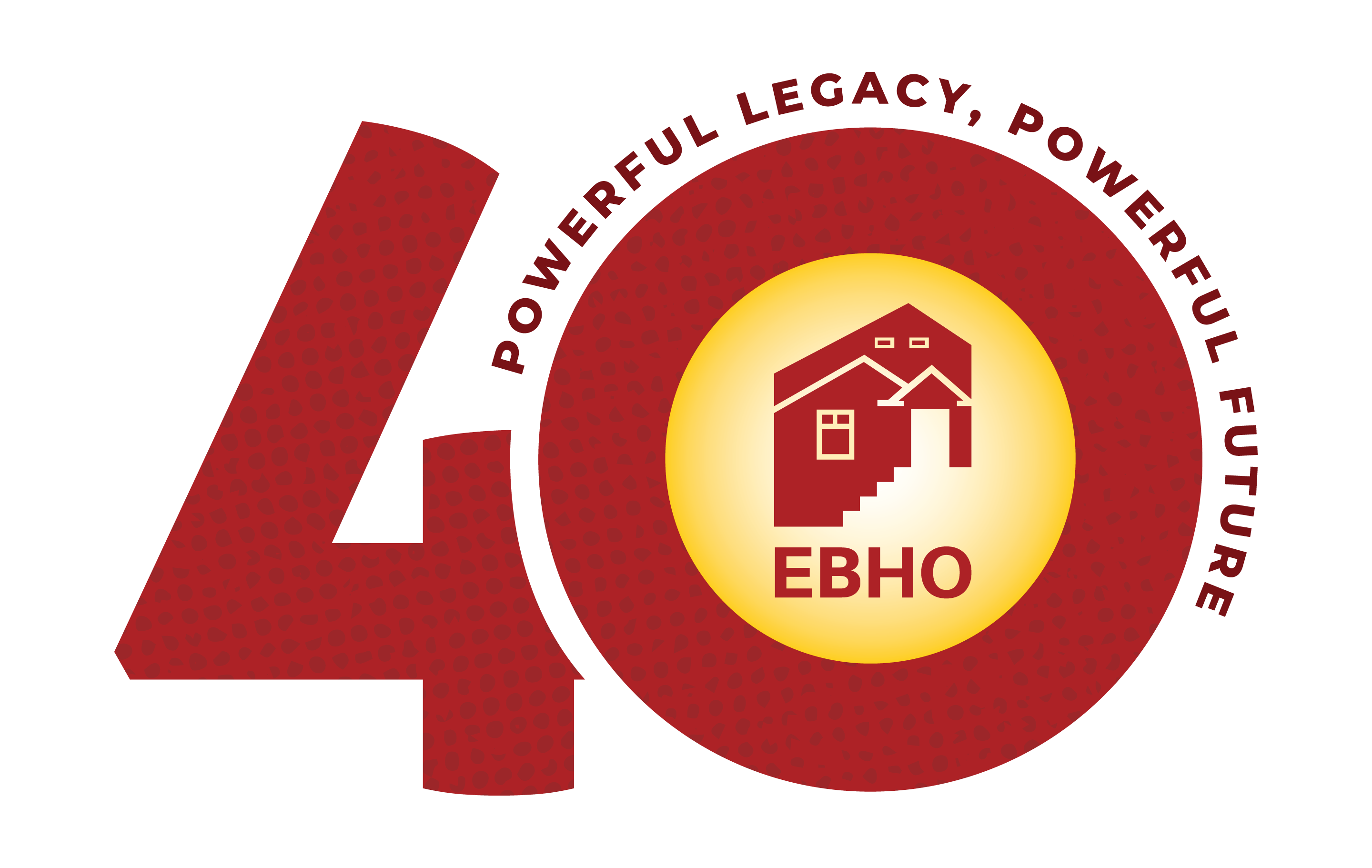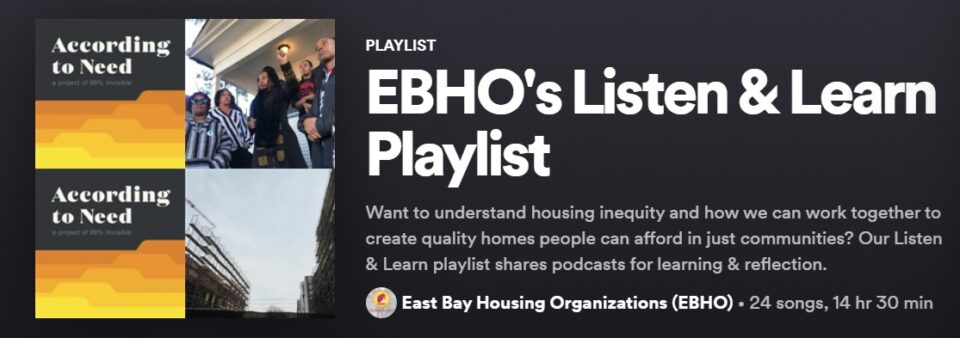Residents of affordable homes are vital members of our communities.
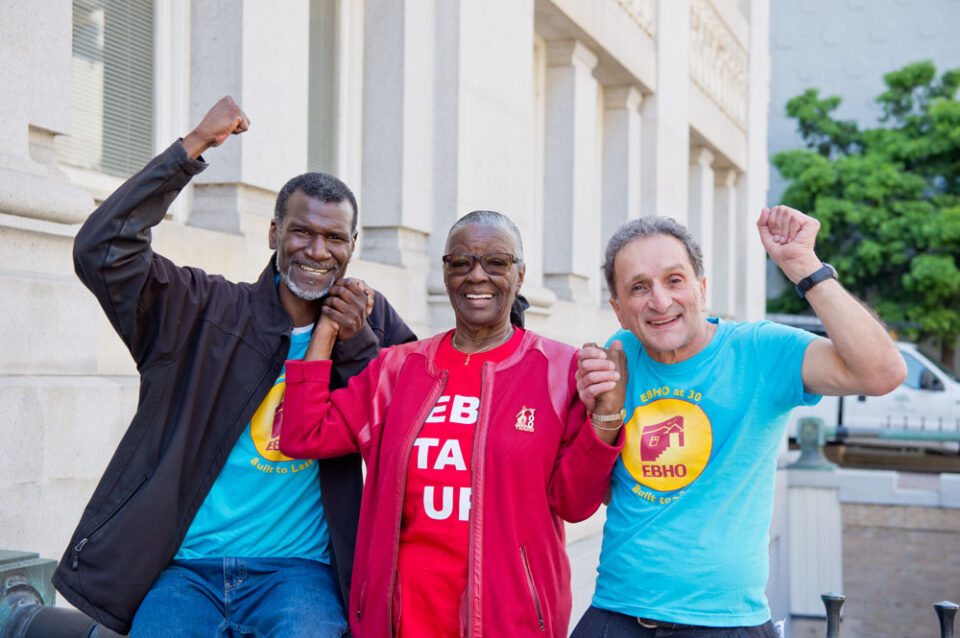
People with low incomes are our neighbors, friends, co-workers, and family. Creating, preserving, and protecting affordable homes is a powerful way to create thriving communities. Non-profit and publicly supported rental homes anchor people in our communities and welcome residents who may have been excluded from some communities in the past, creating just and vibrant neighborhoods. Here in the East Bay, an increasing number of people are unable to find or remain in a home they can afford. Far too often our neighbors who are Black, brown, and white, disabled, elderly, and children, are forced out of their homes and are living on the streets and in vehicles, are overcrowded with extended family, or leave the area altogether because a select few hike up the cost of housing, block new affordable homes, or maintain ordinances that are unfair to renters. We have the power to work together and change this.
Quality, affordable homes that are preserved and created by non-profit and public organizations offer a critical resource for our communities. We welcome you to take a moment and read our members’ stories, which are stories of how affordable homes have stabilized people’s lives and strengthened our communities as a whole.
William Goodwin, Pittsburg, CA
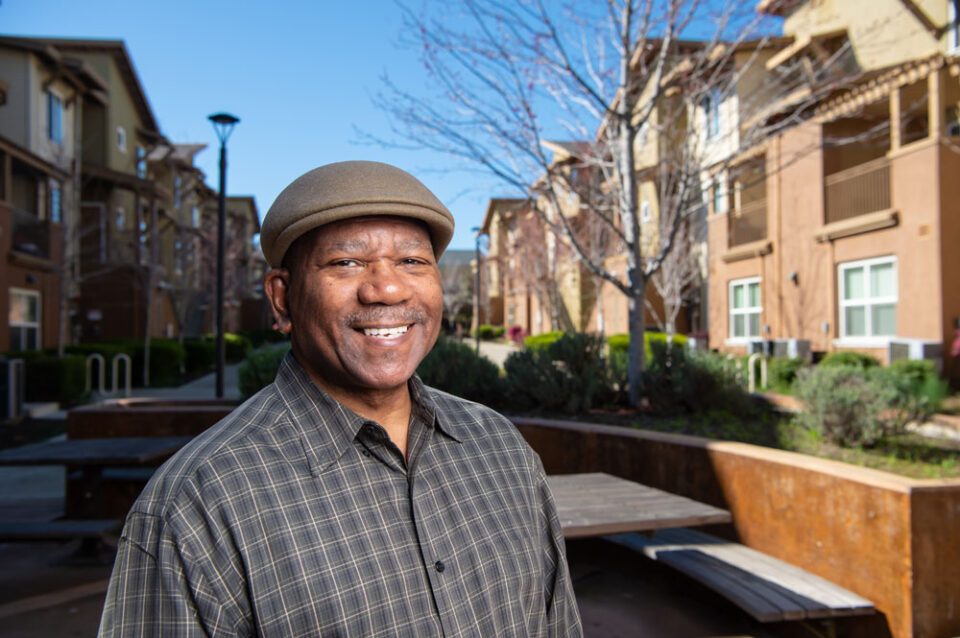
William Goodwin is currently a member of EBHO’s Board of Directors. He’s a resident at Los Medanos Village Apartments, Hope Solutions.
“I was diagnosed with Cervical Stenosis and eventually lost my home, placed my possessions in storage, and then lost my storage and all my belongings. I had joint custody of my daughter Evelyn, but I had to send her to live with her mother in Oregon. She was still young, but I started getting news that she was struggling in school and felt a lot of urgency to find a solution.
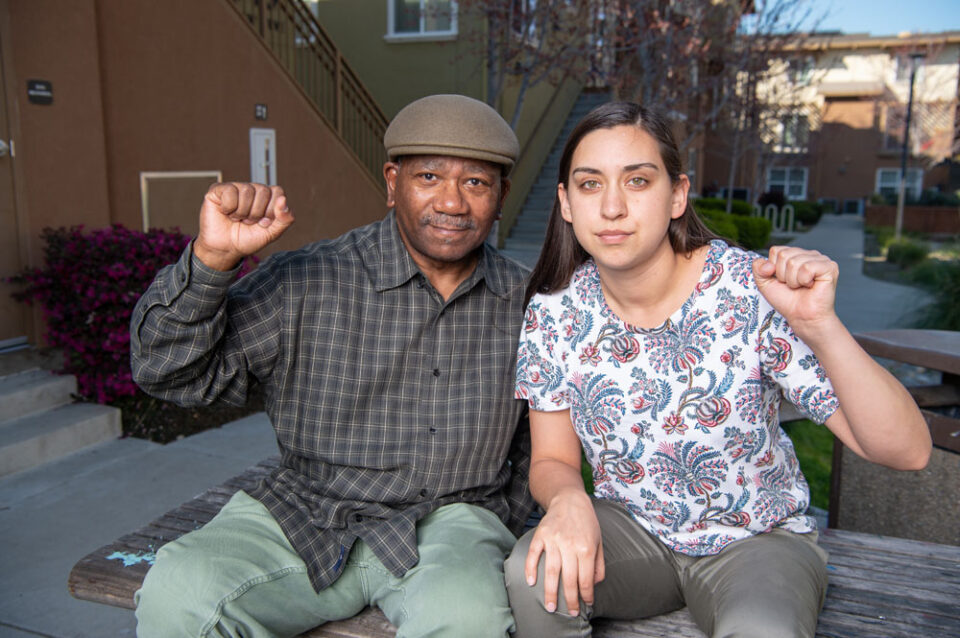
I heard about this opportunity to apply to a new home being built here in Pittsburg and was able to get on the phone with the manager. His name was Joseph, and he had a secretary named Mary. I said, “Wait a minute – this feels spiritual.” I was the last to apply, but I was the very first to move in.
Living here for the last ten years, I’ve tried to teach Evelyn that we’re living off the values of affordable housing. I see all the other children who don’t have that security, who can’t flourish in the community in that same way, and I ask what more can I do to have an impact? I think we need to change the narrative around affordable housing so people don’t see folks as asking for a handout, but instead see the families and the children who need help. Thriving communities are inclusive – they include people of all different backgrounds and races, as well as children, adults, seniors, high earners and low earners. If we’re going to have real impact, we need to consolidate everyone under one platform.”
Carol Crooks, Oakland, CA
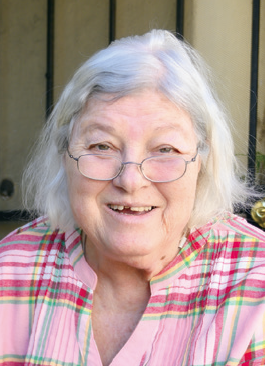
Carol is a leader in EBHO’s Regional Policy Committee and the East Bay Gray Panthers. She is a Section-8 Voucher holder, meaning she pays 30% of her income in rent and federal subsidies pays the difference between that and market rent directly to the person who owns the property she lives in.
“I’ve been interested in politics since way back, but I got deeply involved in housing issues after getting involved with EBHO and the Gray Panthers.”
Carol Crooks trained as an elementary and early childhood teacher, and she often worked clerical and transcription jobs while also substitute teaching. She was unhoused for a period in her mid-forties, sleeping in a leaking camper in her cousin’s yard where it wasn’t safe to use the heater. Through the Section 8 Voucher program, which uses federal and state funds to bridge the gap between 30% of her income and the market cost of rent, she’s been stably housed on the Oakland/Berkeley border for more than 20 years.
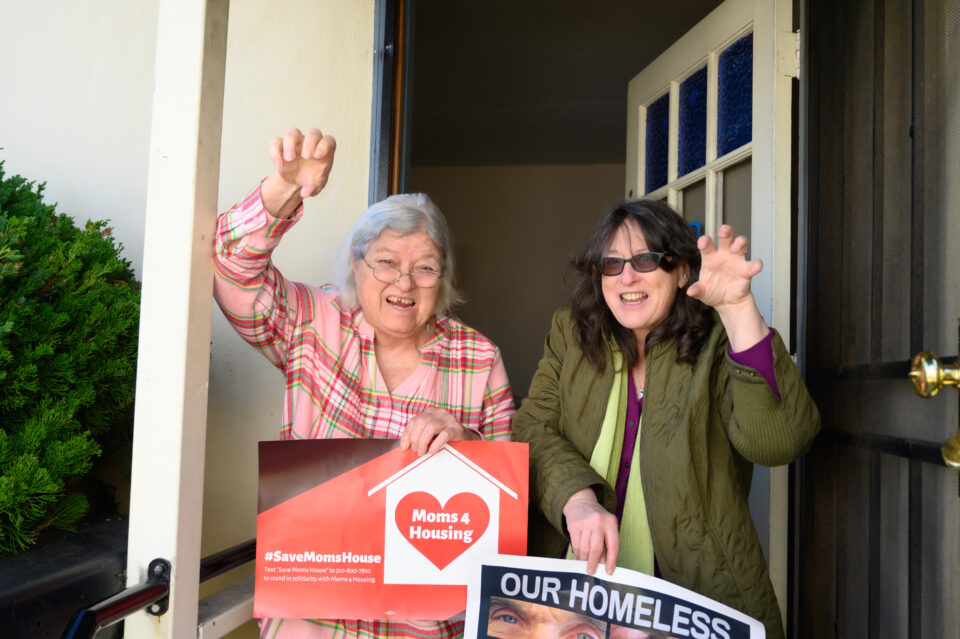
“I’ve been through a ringer, and now I see other people going through it. It’s turning into a regular pipeline where people go homeless. It’s particularly true for the elderly. Half the people who are homeless now in the Bay Area are 50 and up, and it’s rapidly getting worse. A lot of people were squeezed out of here. A lot of people were given vouchers and couldn’t find housing in Oakland, so they had to move further out. I’d like to see those people able to come back.
Denise Norman, Emeryville, CA
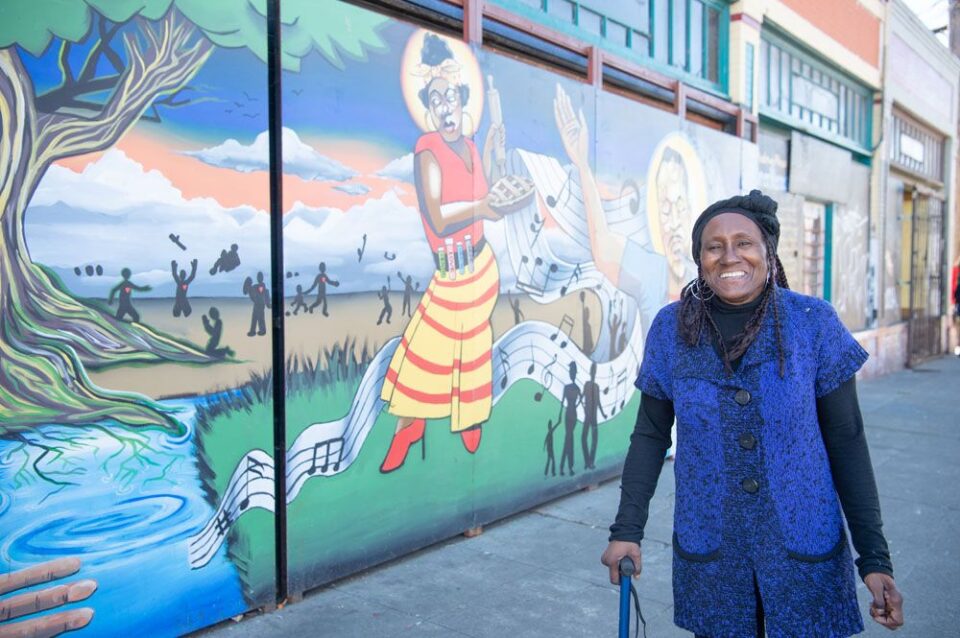
Denise is a leader with EBHO’s RCOP committee and a resident of Sylvester Rutledge Manor, Christian Church Homes.
“My search for affordable housing lasted about 23 years, and I don’t believe in no instant nothing! I worked hardest for it when I needed it most – after my husband died and I was homeless for two years. I found refuge for a time at St. Mary’s transitional housing, and I think in that time I must have filled out about 50 applications for every apartment from here to Sacramento. I needed a home, a place to grieve, heal and get back on my feet. To build my self-esteem back up.
We have a responsibility to help, serve and protect people on the streets. They should be getting keys, not handcuffs. Since I got back up on my feet, I’ve worked on a lot of campaigns to give healthcare to the homeless and increase SSI and food stamps for seniors. I’ve worked with the Residents United Network to pass local measures that create more affordable housing. I’m excited to see people with different opinions come together for one vision.
These days they call me Super Nana, and I’m the president of the Council of Elders for St. Mary’s Hope & Justice Program. Hope and justice are very important things; it’s rewarding to come to justice, to come to right. My hard years taught me that everything worth having has to be earned the hard way, and I believe the things we need most as a community have to be earned together.” – from an interview with EBHO staff for our 2019 Affordable Housing Guidebook.
Residents/Co-owners of Fairmount House, Oakland
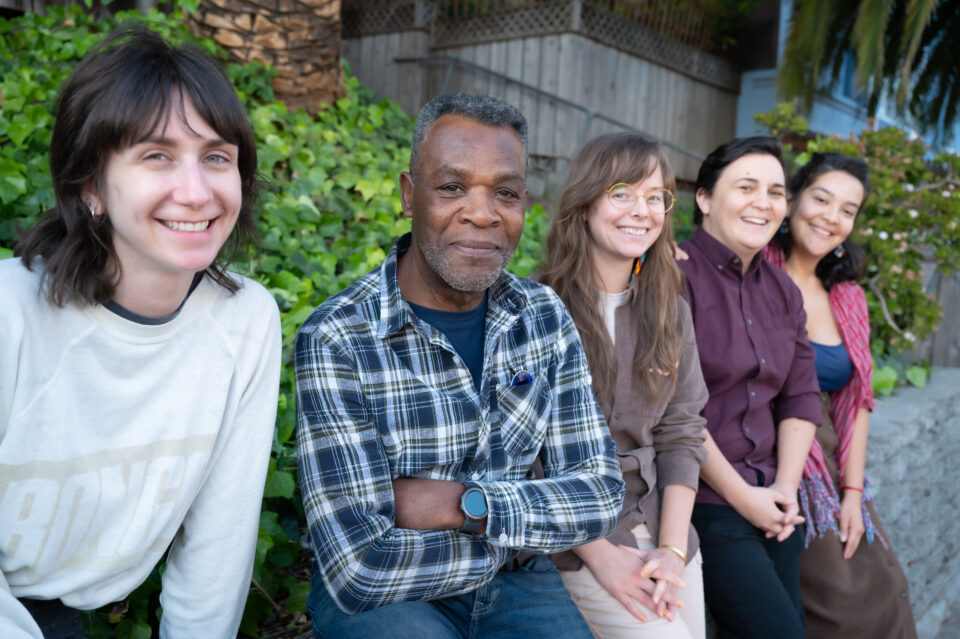
Fairmount House is a 4,600-square-foot mansion that was converted into ten studio apartments managed by the residents themselves. Ronny Flannery, a former EBHO organizer, facilitated a conversation with residents Jocelyn Zorn, Chauncey Roberts and Michael Wharton about what it’s like to create and live in a co-op.
What are the benefits of co-op living?
Jocelyn: In countless ways, it’s the ability of us to have affordable housing in single-occupancy units. I am a 30-year-old who is transitioning professionally. If I needed to sublet my place and move to LA, I could do that. It’s something I’m allowed to do. It’s nice to have your home be a rock for you, a place you can protect for yourself. I feel like financially and personally that’s an asset.
Chauncey: I appreciate seeing the transitions that other individuals in the house are going through – just being a part of their life transitions, be it economic, jobs, or personal lives. It just broadens your perspective.
Jocelyn: Totally, and we have so many different people in different positions. That’s honestly the coolest part about the house!
Chuancey: I grew up in East Oakland. That was one of those neighborhoods where the next-door neighbors would take care of the kids when Mama had to go to work. Those kinds of things got distorted as the demographics changed.
How has the community changed since you’ve lived here?
Michael: When I originally moved in, all of Auto Row was deserted. They were just parking lots. A lot of houses have changed ownership in this community, so there are actually families here now. Before, it was just older people. But the thing is, the people who were here are no longer here. They were not able to stay – they got laid off, they lost their houses. The same thing that would have happened to us.
Michael: I think we are still learning about the governance piece – how do you get consensus? How do you stay respectful of everyone?
Chauncey: Oh yes. This house, as beautiful as it is, probably would have been gone. Without a doubt. They would tear this bad boy down to the ground.
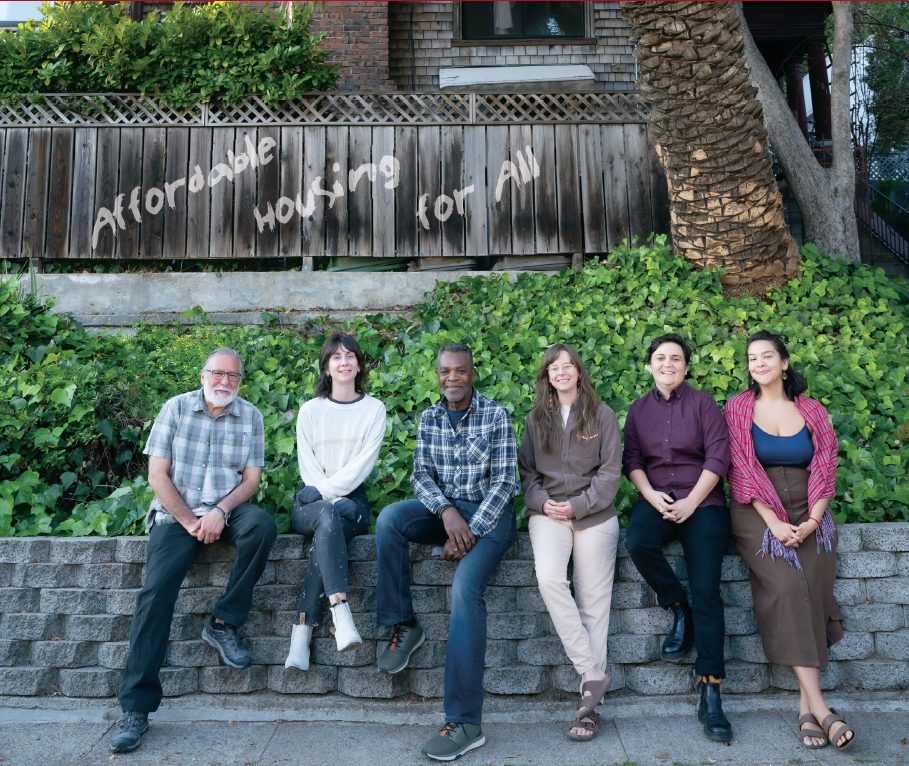
What’s it like to make decisions together?
Jocelyn: One thing I learned form this is that a co-op can look however you want it to, and it’s not just this one thing. Anyone can have a functional co-op if you can get through the weird part of interacting with your neighbors.
Chauncey: Affordable housing is one of the things that needs to be supported in a bigger way. I feel very fortunate to make a difference and come up with the solutions to what we started here.
We thank these residents for sharing their stories with us and honor the tremendous leadership role played by EBHO’s Resident Community Organizing Program (RCOP), which works to build community power in our neighborhoods every day. Many residents featured on this page are or were leaders with this program.
The Places: Non-Profit Affordable Homes
Quality, affordable homes that are preserved and created by non-profit and public organizations offer a critical resource for our communities. Mission-driven organizations within EBHO’s membership recently developed or acquired the housing communities featured here, incorporating innovative design to address community needs for sustainability, play, art, access, and affordability.
These homes provide hundreds of people a safe place to lay their heads each night, including formerly unhoused youth and adults, youth transitioning out of the state foster care system, parents and their children, veterans, seniors, survivors of intimate partner violence, people with disabilities, and low-income workers.
SUNFLOWER HILL AT IRBY RANCH, PLEASANTON
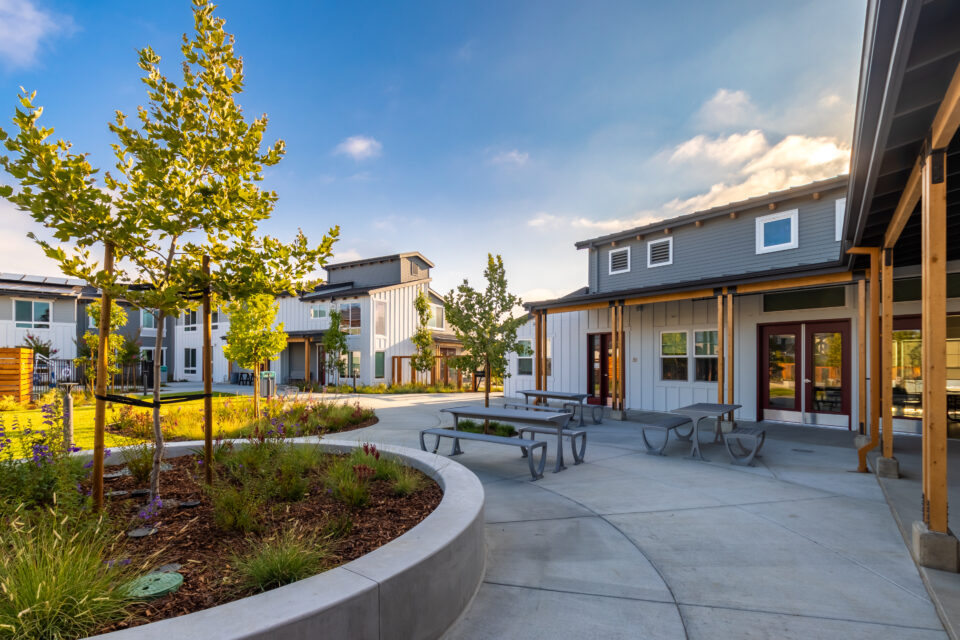
Sunflower Hill at Irby Ranch is the first independent, affordable residential community for people with intellectual and developmental disabilities in the Tri-Valley area. Housing Provider: Satellite Affordable Housing Associates (SAHA) and Sunflower Hill.
Sunflower Hill at Irby Ranch is the new construction of 31 studio, one-and two-bedroom affordable homes for people with intellectual and developmental disabilities (“I/DD”) and their families, as well as a 4,500 square foot community center located in Pleasanton, California. The community includes several amenities including a makerspace room, exercise room, as well as a community room opening onto the large landscaped courtyard with seating areas, multipurpose sport court, and bocce ball court. The 1.64 acre property is GreenPoint Rated Gold.
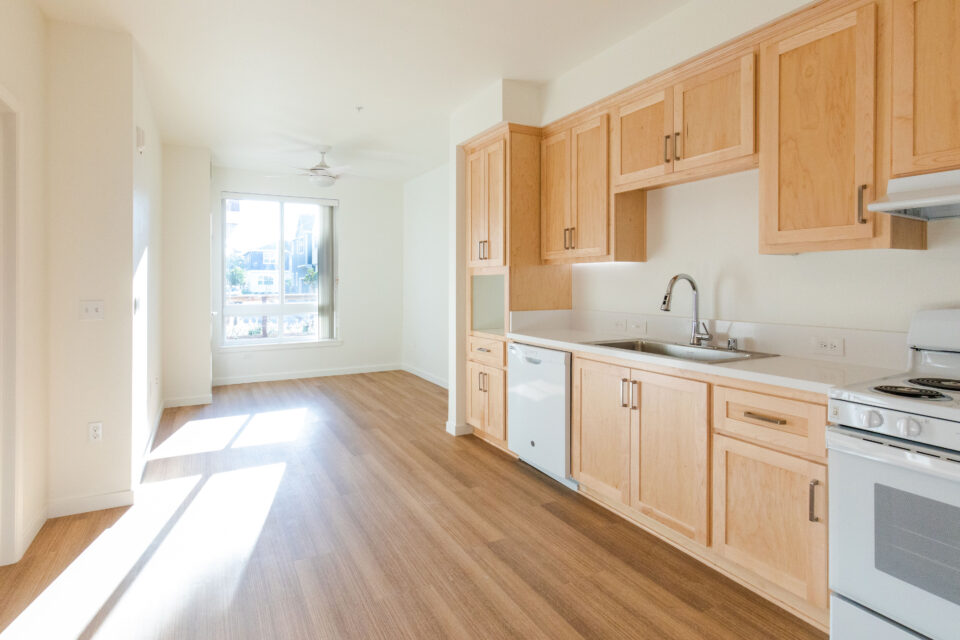
Sunflower Hill at Irby Ranch is the culmination of many years of advocacy as well as a successful partnership between two nonprofits: Sunflower Hill and SAHA. Sunflower Hill is a nonprofit organization whose mission is to create sustainable and intentional residential communities for individuals with developmental disabilities. Sunflower Hill was founded by local parents with adult children with I/DD who were concerned about the severe lack of housing options that would enable their loved ones to live independently with supports as part of the community rather than in an institutionalized setting. The families had a vision for a community akin to senior living: independent living in a safe, secure setting with friends and activities. These families did not have expertise in affordable housing development however, they successfully advocated to have an inclusionary parcel set-aside as part of the land use approvals for a market rate subdivision and also secured zoning approvals to build a higher-density rental project in a town characterized by low-density single-family development. Fast forward several years, and Sunflower Hill in partnership with Satellite Affordable Housing Associates has completed its first development.
Independent living options with support for people with I/DD, are few in number. Such options that are also affordable and without Section 8 or other rental or operating subsidies are truly rare. Sunflower Hill at Irby Ranch was developed on an inclusionary parcel donated by the homebuilder who was concurrently developing Irby Ranch, a single-family residential subdivision. We hope that Sunflower Hill at Irby Ranch will inspire others to find creative solutions when faced with constrained land and funding resources.
CHESTNUT SQUARE SENIOR HOUSING, LIVERMORE
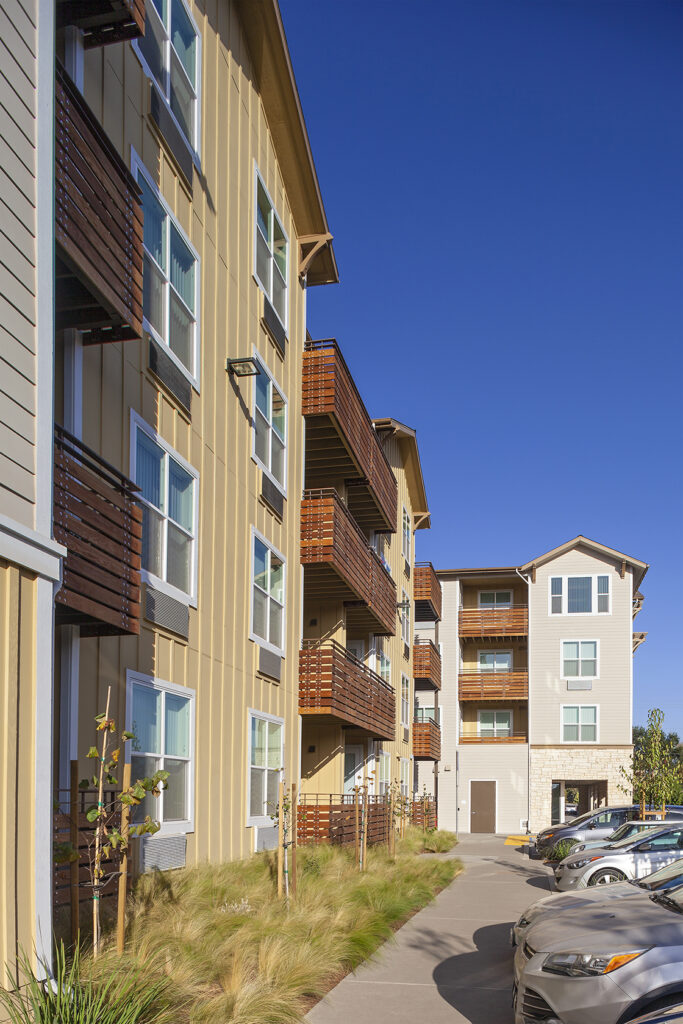
An intergenerational community will share open space and amenities with family housing next door. Housing Provider: MidPen Housing.
Chestnut Square Senior Housing is the first phase of a longtime vision. The City of Livermore will transform a previously underutilized site into a vibrant intergenerational community where people of all ages and incomes will live with easy access to public transportation and community amenities found both onsite and nearby in the heart of Livermore’s North Side district. Next door to Chestnut Square, MidPen will develop 42 affordable rental apartments and market-rate for-sale townhouses for families. Together, this will form an intergenerational community with shared open space close to supermarkets, ACE transit, retail and restaurants in the downtown area.
Five of the 72 apartments are set aside for formerly homeless households with supportive services delivered by a third-party service provider in collaboration with MidPen Services. Other amenities include a community room for resident gatherings, a computer lounge, a balance studio for group exercise classes, a crafts room, and onsite services programming. All the amenities are designed to allow the senior residents, especially those with mobility constraints, to preserve their access to important day-to-day activities and engage with their community.
You can read more about tax-supported affordable housing communities in the East Bay in the property profiles section of our educational tool, The Study Room.
About East Bay Housing Organizations (EBHO)
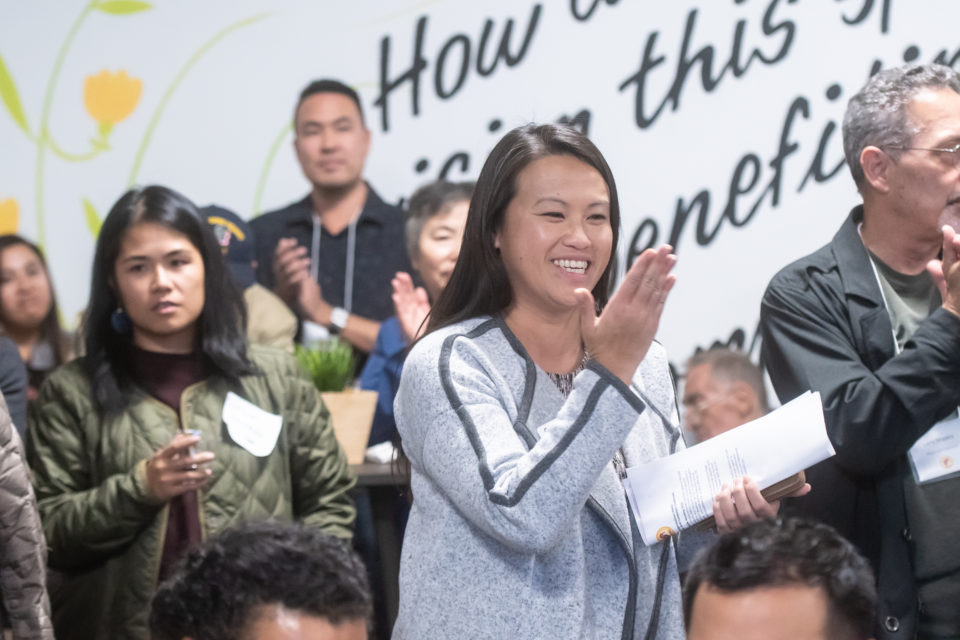
Since 1984, East Bay Housing Organizations has been the leading affordable housing advocacy coalition serving Alameda and Contra Costa Counties. EBHO is a member-driven organization working to preserve, protect, and create affordable housing opportunities for low-income communities in the East Bay by educating, advocating, organizing, and building coalitions.
Collectively, we’re building a movement to ensure everyone has a safe, healthy, and affordable place to call home.
EBHO promotes and preserves affordable housing by:
- Educating elected and public officials, neighborhood associations, faith-based and community organizations, the business community, and the general public about the affordable housing crisis and its solutions.
- Organizing affordable housing residents and allies to lead advocacy campaigns and promote policies that create, fund and preserve affordable housing.
- Building strong coalitions with grassroots and faith communities, public officials, planners, service providers, labor unions, environmental organizations, advocates for people who are unhoused, non-profit affordable housing developers, and everyday concerned citizens to work together and take action.
Get Involved
We know the task of ending homelessness and ensuring everyone has a home they can afford can seem daunting, but together, we can create communities where everyone has a quality home. If you or your organization would like to learn more about affordable housing and support efforts in your community, EBHO’s here to support in the following ways:
Step 1: Sign up for updates about local, regional, and state campaigns to promote affordable housing, updates on EBHO’s events and campaigns.
Step 2: Learn more: Learn about innovative affordable housing solutions and policies through our educational tool The Study Room, and events such as Affordable Housing Month, which we host every May.
Do you like to listen to podcasts? Check out our Listen & Learn Podcast Playlist on Spotify.
Step 3: Taking Action: There are so many ways to take action – big and small – that will make a difference. Follow us on social media and share our news updates with your networks.
Join EBHO as a member! Your membership supports our ongoing work, and you’ll be welcome to participate in one of our local committees, attend member-only events, and more. Are you a member of a faith community? Consider joining our Faith & Justice Committee.
Speak up and share: One person who engages with their faith community or friend group can make a real difference. You can help make our communities a welcoming place for affordable homes and the people who live there.
Send an email in support of new affordable homes or tenant protections to your local council member or other elected official. Sound overwhelming? Join EBHO as a member, and we’ll share alerts of when it’s important to take action, share resources on learning to make a public comment, and more.
Together, we can create an East Bay with affordable homes for all.
